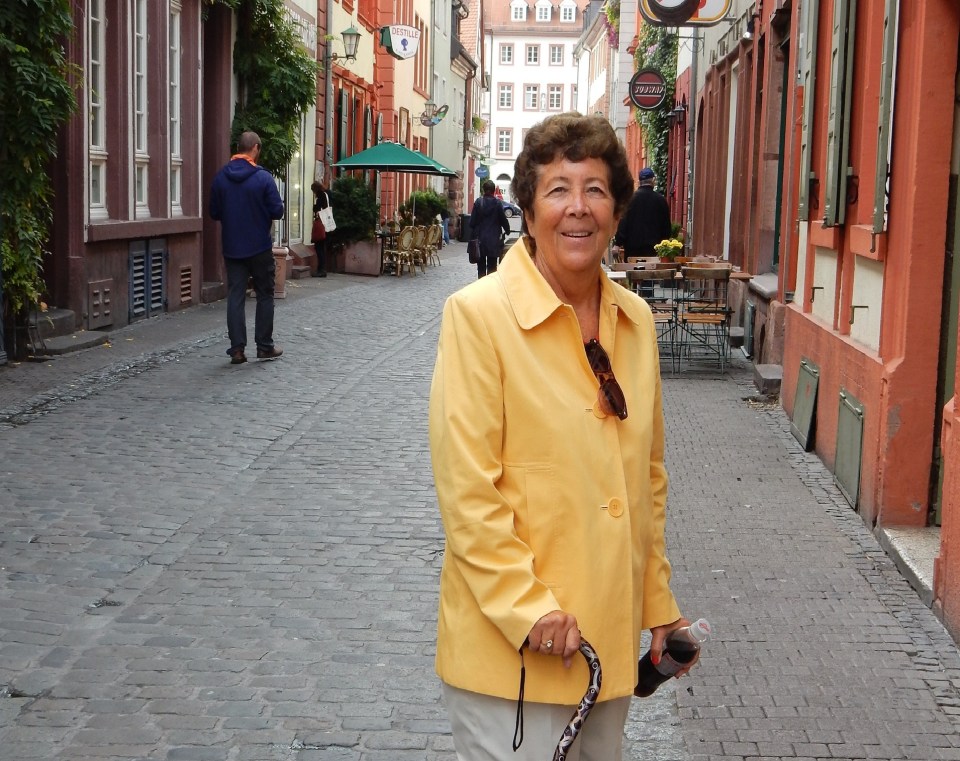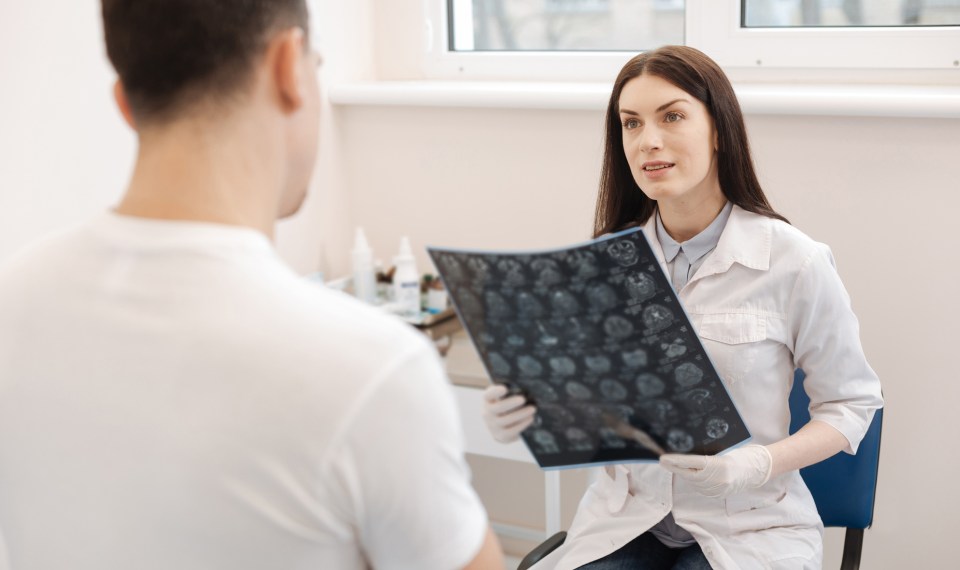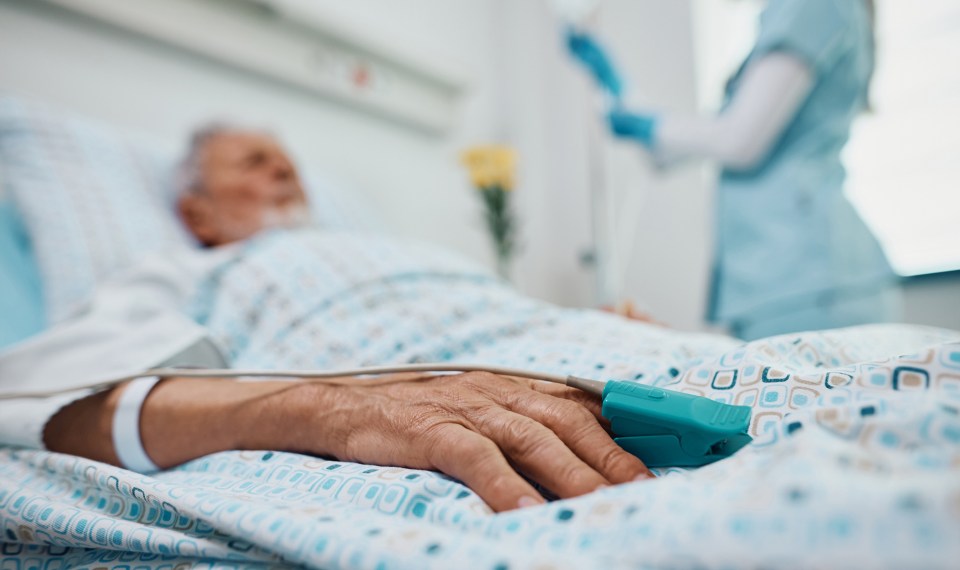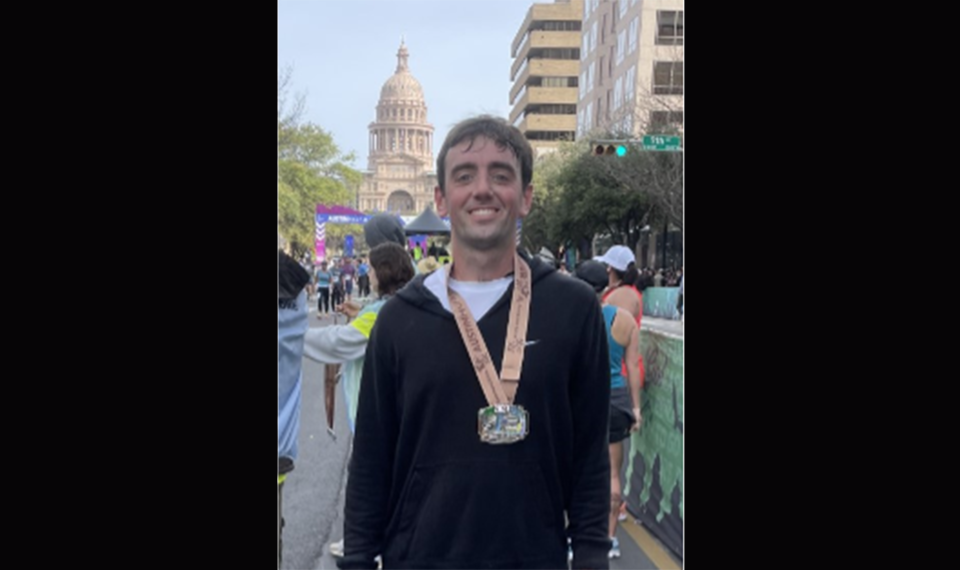Anne Llewellyn has been in the nursing field for nearly 50 years. She’s worked in various disciplines, eventually falling in love with case management. In that role she visited Encompass Health hospitals in Florida on behalf of patients with brain injuries, spinal cord injuries and other complex health situations. “My role was to make sure the patient and family had the resources they needed to meet their personal goals,” she said. She never guessed that one day, she would be the patient.
Receiving a Shocking Diagnosis
During a presentation at a conference, Llewellyn’s vision became blurred. Unsure of the cause, she went to her eye doctor, who found nothing wrong. On her way home from the appointment she hit a curb and wrecked her vehicle. She called her husband to pick her up. They immediately went to the emergency room where Llewellyn underwent a CT scan. “That’s when everything exploded,” Llewellyn said. With her husband by her side, her doctor shared the diagnoses—a central nervous system lymphoma brain tumor. “It was just such a shock for both of us to hear that. I had a brain tumor and we both didn’t know what to do next,” Llewellyn said.
Under the care of a hematologist and oncologist, Llewellyn underwent chemotherapy, which thankfully worked. After the third treatment, she was cancer free. However, Llewellyn spent a lot of time in a hospital bed for treatment and observation. She grew weaker with each passing week. By the time she finished chemotherapy, she was so weak that she could hardly walk. When she did try to walk, she fell. She had difficulty lifting the front part of her foot (also known as a foot drop) and neuropathy, which caused numbness and pain in her feet. Both affected her balance. She knew she had to seek inpatient rehabilitation to get back her strength.
The Role of Case Manager Matters
With decades of experience navigating healthcare, Llewellyn knew where she wanted to go. She called Encompass Health Rehabilitation Hospital of Miami to speak with a case manager who urged her to come in for an evaluation.
At Encompass Health, case managers are patients’ primary point of contact from admission to discharge. They help patients and their loved ones understand their care plan, stay updated on their progress and advocate on their behalf. Case managers also connect patients with resources in their community for a safe return home.
Understanding the importance of case workers, Llewellyn felt at ease at Encompass Health. “What I really liked was that the hospital highlighted the role of the case manager in the rehabilitation process,” she said. “I’ve never seen that before because I never was the patient.” She said she felt that throughout her stay, her care team took the time to help her understand her therapies and address her questions.
She was evaluated by an interdisciplinary team of therapists—physical and occupational—and introduced to her nurses and physician, Dr. Scott Tannenbaum. She appreciated the team’s bedside manner and willingness to address her concerns. “Dr. Tannenbaum listened. He tried to give you answers to what you were worried about. All the therapists explained what they were going to do, and it was going to help me progress to the point that I could do the exercises that they wanted me to independently,” she said. “They gave me hope that I was going to get better.”
Back in the Water
Before her diagnosis, Llewellyn loved to swim. To her delight, swim therapy was incorporated into her care plan. “That was very uplifting for me because that was something I liked to do. As soon as I got in the water, I felt comfortable.”
Her therapist also advocated for Llewellyn to be fitted for small braces for her shoes to help with balance. During her two-week stay at Encompass Health Miami, she went from using a wheelchair to moving around much easier with a walker. This set her up for continued success after discharge.
Returning Home
Shortly after returning home, Llewellyn was able to embark on a river cruise with her husband, a trip they both looked forward to before her inpatient rehabilitation.
Now, Llewellyn is able to walk and still enjoys visiting her community pool. Llewellyn stays busy as an independent nurse advocate, helping patients navigate the healthcare system and find the best care possible. Her work includes coaching and mentoring, speaking engagements and writing for her advocacy blog. “I love to swim, travel and connect with people. I live a full life and look forward to new and exciting adventures,” she said.
The content of this site is for informational purposes only and should not be taken as professional medical advice. Always seek the advice of your physician or other qualified healthcare provider with any questions you may have regarding any medical conditions or treatments.



